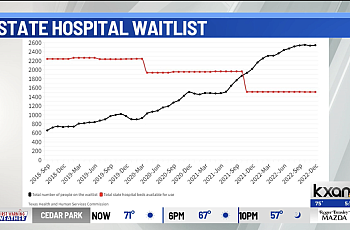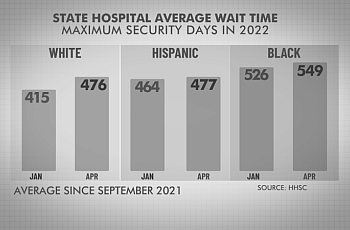
David Barer
Senior Investigative Producer/Digital Reporter

Senior Investigative Producer/Digital Reporter
David Barer is the Senior Investigative Producer and Digital Reporter with KXAN’s investigative team. David was born and raised in Houston. He received a bachelor’s degree from Santa Clara University and a master’s of journalism degree from The University of Texas at Austin. David has reported for Reporting Texas, KUT News, Austin American-Statesman, Associated Press, Texas Climate News and Community Impact Newspaper. His work has been syndicated by many more publications. While studying at UT, David was selected from students throughout the country to help cover President Obama’s inauguration as a digital reporter for PBS NewsHour. David was also one of the first Belo Fellows of Journalism at The Dallas Morning News, where he covered state politics and general assignments from the paper’s Austin bureau. In his spare time, David enjoys fishing throughout Central Texas.
Dozens of mentally incompetent men and women have died awaiting placement in a state hospital, and thousands more have been left for months in jail waiting for a state hospital bed.

After years of steady waitlist growth, state data shows a glimmer of hope for an eventual turnaround.
As the waitlist for a state hospital bed in Texas continues to grow, mental health leaders remain dedicated to the widespread adoption of a strategy known as “Eliminate the Wait.”
New details revealed about a fatal incident within Texas’ understaffed state hospital system, where little information is made public about patients — even when they die.
If Adan Castaneda were charged with a crime and found mentally incompetent to stand trial in October 2022, he would be court ordered to a state mental hospital and stuck in jail for about two years before a hospital bed would become available.

This project was supported by the USC Annenberg Center for Health Journalism....

State data show a record number of people experiencing a mental health crisis are waiting in jails for beds in state hospitals that don’t have enough staff to operate at capacity.
How two reporters laid bare chronic problems in Texas jails, where inmates with mental health needs languish and die at alarming rates.

In recent years, there have been efforts to increase other competency restoration alternatives – like jail-based or outpatient methods – but for some people, those options are not always available.

“They often refer to us as a restorative justice court, where we focus on assisting repeat offenders and connecting them to services so that those repetitive offenses stop,” said the court's administrator.